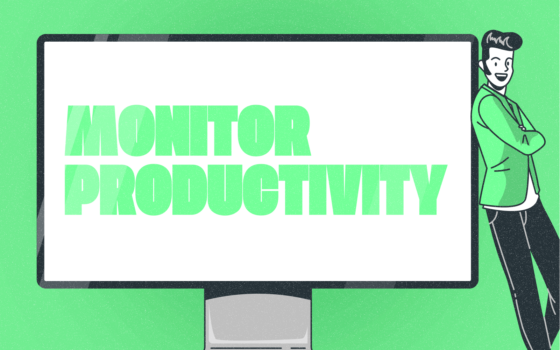HR in the Restaurant Industry
As the restaurant industry continues to evolve, HR professionals must remain adaptable and proactive in addressing the unique challenges and opportunities that arise. By focusing on employee wellbeing, fostering a positive work culture, and ensuring compliance with relevant regulations, HR can help restaurants thrive in an increasingly competitive landscape.
By staying up-to-date with industry trends, leveraging technology, and implementing best practices, HR professionals can create positive work environments that attract and retain top talent, ultimately contributing to the overall success of the restaurant business.
HR in the restaurant industry is a multifaceted and challenging field that requires a unique blend of skills and knowledge. From recruitment and training to compliance and crisis management, HR professionals play a crucial role in ensuring the success and sustainability of restaurants.
Conclusion
- Implementing cross-training programs to ensure critical roles can be covered
- Creating remote work policies (where applicable)
- Developing flexible staffing models
HR professionals should contribute to business continuity planning by:
Business Continuity Strategies
- Security threats
- Health emergencies
- Natural disasters
HR should work with management to develop comprehensive emergency response plans that address various scenarios, including:
Emergency Response Planning
The COVID-19 pandemic highlighted the importance of crisis management and business continuity planning in the restaurant industry. HR professionals must be prepared to handle various crises and ensure the safety of employees and customers.
Crisis Management and Business Continuity
- Effective communication across cultures
- Recognizing and addressing unconscious bias
- Cultural sensitivity in customer service
HR professionals should develop and implement cultural competence training programs to foster understanding and respect among staff. These programs may cover topics such as:
Cultural Competence Training
- Providing language support for non-native English speakers
- Offering gender-neutral restroom facilities
- Implementing flexible religious accommodation policies
Developing inclusive workplace policies is essential for creating a welcoming environment for all employees. This may include:
Inclusive Workplace Policies
- Providing diversity and inclusion training for hiring managers
- Implementing blind resume screening processes
- Expanding recruitment sources to reach diverse candidate pools
HR should focus on implementing diverse hiring practices, such as:
Diverse Hiring Practices
Promoting diversity, equity, and inclusion is increasingly important in the restaurant industry. HR professionals play a crucial role in developing and implementing DEI initiatives that create a more inclusive work environment.
Diversity, Equity, and Inclusion (DEI) in Restaurants
- Offering on-demand access to training materials
- Tracking employee progress and certifications
- Providing online training modules
An LMS can enhance training and development efforts by:
Learning Management Systems (LMS)
- Tracking candidate progress
- Scheduling interviews
- Organizing and screening applications
- Managing job postings across multiple platforms
An ATS can streamline the recruitment process by:
Applicant Tracking Systems (ATS)
- Benefits administration
- Payroll processing
- Time and attendance tracking
- Employee data management
Implementing an HRIS can help manage various HR functions, including:
HR Information Systems (HRIS)
Leveraging technology can streamline HR processes and improve efficiency in the restaurant industry. HR professionals should explore and implement relevant tools and systems to enhance their operations.
Technology and HR in Restaurants
- Tuition reimbursement for relevant courses or certifications
- Mentorship initiatives
- Leadership development programs
- Cross-training opportunities
Providing clear paths for career advancement can significantly improve employee retention. HR professionals should work with management to develop career development programs, such as:
Career Development Opportunities
- Fostering a sense of camaraderie among staff
- Organizing team-building activities and events
- Recognizing and rewarding employee contributions
- Promoting open communication and transparency
Developing a strong, positive work culture is essential for employee satisfaction and retention. HR can contribute to this by:
Creating a Positive Work Culture
High turnover rates are a persistent challenge in the restaurant industry. HR professionals must implement strategies to improve employee engagement and retention, fostering a positive work environment and reducing costly turnover.
Employee Engagement and Retention
- Employee discounts or perks
- Professional development opportunities
- Health insurance options (for full-time employees)
- Employee meal programs
- Flexible scheduling options
While traditional benefits may be challenging to offer in the restaurant industry, creative HR professionals can develop attractive benefits packages that may include:
Benefits Programs
- Shift differentials for less desirable hours
- Tip sharing or pooling systems
- Performance-based bonuses or incentives
- Competitive base wages
Effective compensation strategies in the restaurant industry may include:
Compensation Strategies
Designing competitive compensation packages and benefits programs is crucial for attracting and retaining top talent in the restaurant industry. HR professionals must balance the need for attractive offerings with the financial constraints of the business.
Employee Benefits and Compensation
- Training programs for employees and managers
- Investigation protocols
- Reporting procedures for incidents
- Clear definitions of prohibited behaviors
Creating a safe and inclusive work environment is paramount in the restaurant industry. HR professionals must develop and enforce comprehensive anti-discrimination and harassment policies, including:
Anti-Discrimination and Harassment Policies
- Emergency response plans
- Proper use of personal protective equipment (PPE)
- Workplace safety protocols
- Food safety and handling procedures
Restaurants must adhere to strict health and safety standards to protect both employees and customers. HR professionals play a crucial role in implementing and enforcing these regulations, which may include:
Health and Safety Regulations
Accurate timekeeping and payroll processes are essential to ensure compliance and avoid costly legal issues.
- Break and meal period requirements
- Tip credit and tip pooling rules
- Overtime pay regulations
- Minimum wage requirements
Restaurant HR must navigate complex wage and hour laws, including:
Wage and Hour Laws
Ensuring compliance with labor laws and regulations is a critical aspect of HR in the restaurant industry. HR professionals must stay up-to-date with the latest legal requirements and implement policies and procedures to maintain compliance.
Compliance and Legal Considerations
- Implementing reward and recognition programs
- Providing constructive feedback and coaching
- Conducting regular performance reviews
- Setting clear performance expectations and goals
Key components of performance management in restaurants include:
Regular performance evaluations and feedback are essential for maintaining high standards of service and identifying areas for improvement. HR professionals should work closely with restaurant managers to develop and implement effective performance management systems.
Performance Management
- Promoting open communication and feedback channels
- Implementing fair and consistent disciplinary procedures
- Mediating disputes between employees or between staff and management
- Developing and communicating clear policies and procedures
Key responsibilities in this area include:
Maintaining positive employee relations is crucial in the high-stress environment of a restaurant. HR professionals must be adept at handling conflicts, addressing grievances, and fostering a harmonious work atmosphere.
Employee Relations and Conflict Resolution
- Emergency procedures and safety protocols
- Point of sale (POS) system operation
- Menu knowledge and upselling techniques
- Customer service skills
- Food safety and hygiene standards
Training programs should cover various aspects, including:
Effective onboarding and training programs are essential for setting new employees up for success and reducing turnover rates. HR professionals must design and implement comprehensive onboarding processes that familiarize new hires with the restaurant's policies, procedures, and culture.
Onboarding and Training
- Conducting thorough interviews and skills assessments to ensure a good fit
- Implementing efficient screening processes to identify candidates with the right skills and attitude
- Utilizing industry-specific job boards and social media platforms to reach potential candidates
- Crafting compelling job descriptions that accurately reflect the role and restaurant culture
Key considerations in restaurant recruitment include:
Attracting and retaining talented staff is a constant challenge in the restaurant industry. HR professionals must develop effective strategies to source, screen, and hire qualified candidates for various positions, including chefs, servers, bartenders, and kitchen staff.
Recruitment and Hiring
Restaurant HR encompasses a wide range of responsibilities, from recruitment and training to performance management and compliance. Let's explore the key components of HR in the restaurant industry:
The restaurant industry is known for its fast-paced environment, high turnover rates, and unique challenges. HR professionals in this field must adapt their strategies to address these specific needs while maintaining a focus on employee wellbeing and organizational growth.
Understanding HR in the Restaurant Context
Human Resources (HR) plays a crucial role in the restaurant industry, ensuring smooth operations, employee satisfaction, and overall success. This comprehensive glossary article delves into the various aspects of HR in the restaurant sector, providing valuable insights for restaurant owners, managers, and HR professionals.


